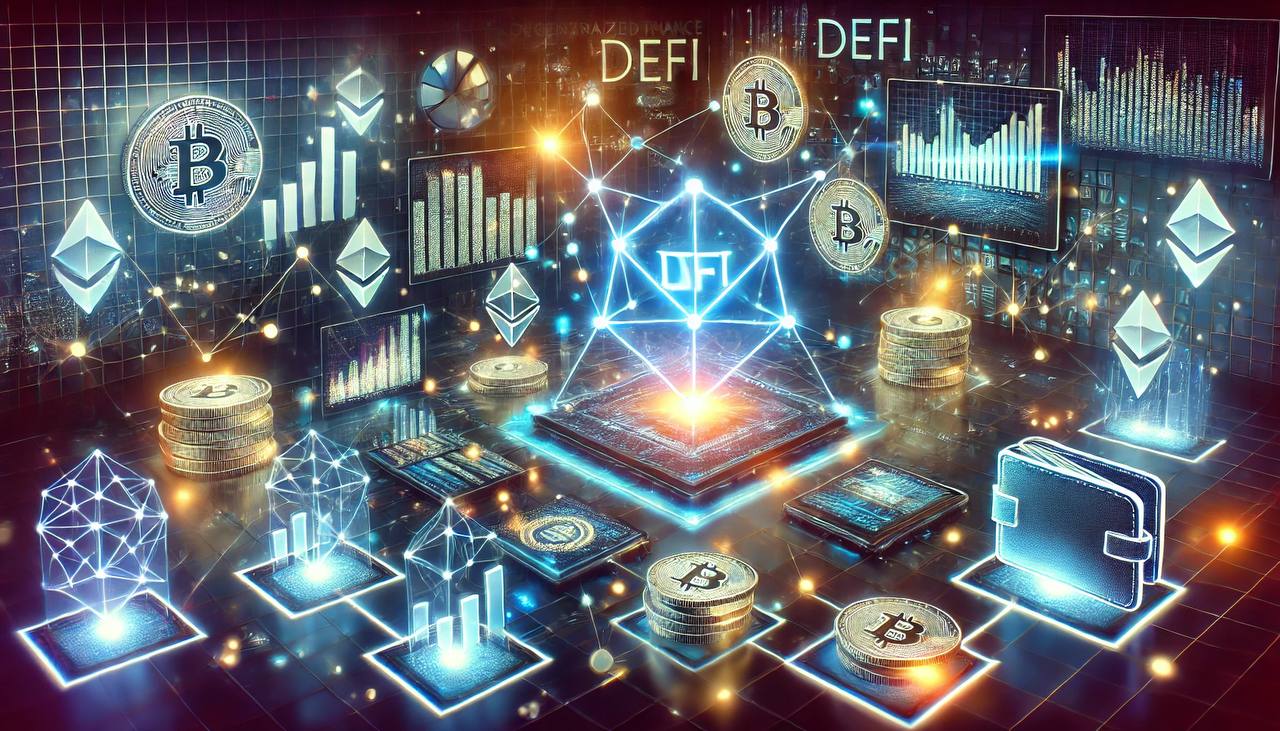DeFi (Decentralized Finance) is a rapidly growing sector in the world of cryptocurrencies and blockchain technology, designed to completely transform the traditional financial system. Unlike centralized financial institutions such as banks or credit organizations, DeFi offers the ability to conduct financial transactions through decentralized platforms, without intermediaries, using smart contracts on the blockchain.
In this article, we will explore what DeFi is, how it works, what opportunities it offers, and the risks it poses to users.
What is DeFi?
DeFi refers to a set of financial products and services built on blockchain technology that provide the same functionalities as traditional financial institutions, but without the need for intermediaries (such as banks). This means users can manage their money, loans, credit, investments, and insurance through decentralized applications (dApps) that use blockchain to ensure transparency, security, and independence from central authorities.
DeFi systems are based on smart contracts — programs that automatically execute the terms of agreements between parties, without the need for a third party. These contracts encode the terms of agreements on the blockchain, ensuring the security and reliability of transactions.
Key Components of DeFi
Decentralized Exchanges (DEX)
Decentralized exchanges are platforms for cryptocurrency trading that do not require intermediaries. Unlike centralized exchanges like Binance or Coinbase, DEX allows users to exchange assets directly with each other, providing greater privacy and control over their funds.
Lending and Borrowing
DeFi platforms offer users the ability to earn interest on their cryptocurrencies or take out loans by providing their assets as collateral. These platforms use smart contracts to automatically define the terms of the loans, including interest rates and duration.
Staking and Yield
In DeFi, users can earn returns on their cryptocurrencies through staking, where they lock their coins to support the network and receive rewards. This is similar to deposits in traditional banks, but with higher interest rates.
Liquidity Pools
Liquidity pools are reserves of cryptocurrencies that users provide to ensure liquidity on decentralized exchanges. In exchange, participants receive commissions from transactions taking place on the platform.
Insurance
DeFi also offers opportunities for decentralized insurance, where users can create contracts to protect against risks, such as loss of cryptocurrency or unpredictable market fluctuations.
How Does DeFi Work?
DeFi works by using smart contracts on a blockchain. A blockchain is a distributed and open database that records all transactions and allows for transparency, security, and immutability of data.
When a user interacts with a DeFi platform, all transactions and actions are recorded on the blockchain, ensuring they are independent of third parties and preventing any interference. DeFi platforms also use cryptocurrencies to ensure liquidity and conduct transactions in a decentralized network.
Conclusion
DeFi opens up new possibilities for financial operations, providing opportunities that were not available in the traditional financial system. It could become a revolution in how we think about money, credit, and investments. However, like any new technological development, DeFi is not without risks, and users should be prepared for potential difficulties related to technical issues, regulatory limitations, and market volatility.
Nevertheless, the development of DeFi continues to gain popularity and attract the attention of investors, entrepreneurs, and technology leaders around the world. With each passing year, this sector will become an increasingly important element of the global economy and financial systems.
